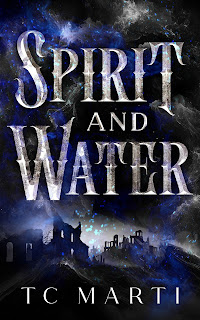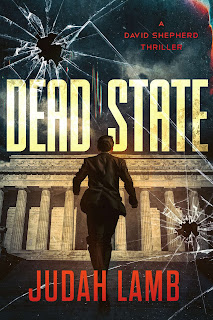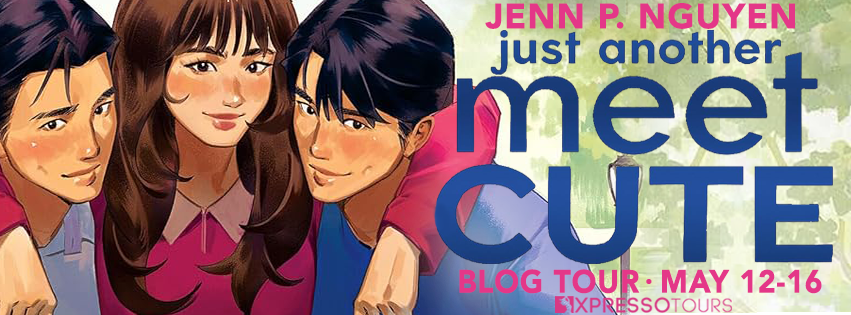Thursday, July 20, 2017
VBT + #Giveaway: The End of Ordinary by Edward Ashton @edashtonwriting @GoddessFish
The End of Ordinary
by Edward
Ashton
GENRE: Science
Fiction
BLURB:
Drew Bergen is an
Engineer. He builds living things, one gene at a time. He's also kind of a
doofus. Six years after the Stupid War -- a bloody, inconclusive clash between
the Engineered and the UnAltered -- that's a dangerous combination. Hannah is
Drew's greatest project, modified in utero to be just a bit better at running
than most humans. She’s also his daughter. Her plan for high school is simple:
lay low and run fast. Unfortunately for Hannah, her cross-country team has
other plans.
Jordan is just an
ordinary Homo-Sap. But don’t let that fool you -- he’s also one of the richest
kids at Briarwood, and even though there isn’t a single part of him that’s been
engineered, someone has it out for him.
Drew thinks he’s
working to develop a spiffy new strain of corn, but Hannah and her classmates
disagree. They think he's cooking up the end of the world. When one of Drew's
team members disappears, he begins to suspect that they might be right. Soon
they're all in far over their heads, with corporate goons and government
operatives hunting them, and millions of lives in the balance.
Excerpt:
“Okay,” he said. “Let’s take this one
step at a time. Why do you need accomplices?”
“I already told you,” Micah said.
“We are like ninety percent fully opposed to your plans to murder Jordan.
Ninety-five percent, even.”
“Quiet,” Bob said. “Grownups are
talking now.”
“Micah’s an idiot,” Marta said, “but
believe it or not, he’s mostly right. We know about Project Snitch, Daddy.”
Bob’s eyebrows came together at the
bridge of his nose.
“Project what?”
Marta rolled her eyes.
“Give it up, Dad. I don’t have
anything else to do around here, so I snoop. I’ve heard you and Marco talking
about Project Snitch more than once.”
“Actually,” I said, “I think Hannah
said that the real name for it was Project Dragon-Corn.”
Bob’s face went blank.
“Oh,” he said, after a long, silent
pause. “Oh. Oh, honey. You mean project Sneetch.”
I looked at Marta. Marta looked at
me. Micah finished his smoothie, wiped his mouth with the back of his hand, and
smiled.
“Uh,” Marta said. “What?”
Bob sighed.
“Sneetch, honey. Not Snitch.
Sneetch.”
“Oh,” Marta said. “I thought you
were just making fun of Marco’s accent when you said it that way.”
We all turned to stare at her.
“Anyway,” I said. “Confusion-wise,
I’m not sure that’s…”
I slapped my palm to my forehead and
let out a long, low groan.
“What?” Micah asked. “Are you having
a stroke?”
“Sneetch,” I said. “Project Sneetch.
Holy shit, dude. You think you’re Sylvester McMonkey McBean.”
“Right,” Bob said. He leaned back,
and crossed his arms over his chest. “See, honey? Your gay boyfriend gets me.”
Interview with Edward Ashton
What inspired you to write The End of
Ordinary?
I’ve
always been a fan of the not-quite-right. The protagonists of my first book,
Three Days in April, are basically the bastard offspring of The Island of Dr.
Moreau and the Island of Misfit Toys. A lot of the fun of writing that book
came from imagining how things are likely to go wrong when we first start
trying to tweak our kids’ genes to make them faster or stronger or better
looking. Want a kid with a seventy inch vertical leap? Don’t forget to give him
stronger tendons and bones to go along with all those fast twitch muscles if
you don’t want him to cripple himself the first time he tries to dunk a
basketball. When I started writing The End of Ordinary, though, I wanted to
look at a different question: what happens when we figure out how to make genetic
alterations that actually work? The protagonists of this book are the second
generation of Engineered folk, and these ones aren’t misfits. They’re the lucky
recipients of the best genes that money can buy. That doesn’t mean they don’t
have problems, though. The racism and class resentments we see in today’s
society are based largely on imaginary differences. Humans as a species have
fewer genetic variants than almost any other large mammal. I wanted to see how
bad things might get when those differences become real.
Can you tell us a little bit about what you
have planned for the future?
I’m
currently about three-quarters finished with the first draft of my next book, A
Brief History of the Stupid War. This one is set in the same future as The End
of Ordinary and Three Days in April, and tells the story of the war between the
engineered and the unmodified that serves as a backdrop in The End of Ordinary.
I also try to put out a new short story every couple of months. You can find
links to most of those on my website, edwardashton.com.
Can you tell us a little bit about the
characters in The End of Ordinary?
The End
of Ordinary is set in the near future, which is not entirely a spooky dystopia.
Things are actually mostly okay in late twenty-first century upstate New York,
despite the occasional super-plague or near-apocalyptic civil war. Drew Bergen
works for Bioteka, a custom genetic engineering shop. His daughter Hannah is a
fourteen-year-old running phenom who got her awesome lung capacity from
Bioteka, and her questionable social skills from her dad.
Hannah
doesn’t have a ton of friends, so when she meets Devon Morgan at a high school
cross-country meet, she’s willing to overlook a few minor flaws—including that
Devon’s family is on a government watch list, she’s palling around with what is
probably an illegal A.I., and she’s convinced that Hannah’s dad is caught up in
a scheme to end the simmering hostility toward the genetically modified elite
by wiping the world clean of the unmodified. Hannah and Devon set out to learn
whether there's more to Drew’s work than blight-resistant corn, and hilarity
ensues.
You know I think we all have a favorite
author. Who is your favorite author and why?
I’ll
preface this by saying that I read a lot of different authors, and it’s really
difficult to narrow things down to just one favorite. That said, there are a
few writers who, if they slapped together a grocery list, I would definitely
pick it up in hardcover. Two of those are David Brin and Kurt Vonnegut. These
are very different writers, obviously, and I admire them for very different
reasons. Brin has an uncanny ability to imagine new worlds and bring them to
life. It’s hard to appreciate how difficult this is until you’ve tried it.
Vonnegut, on the other hand, doesn’t worry too much about world building. He
just brings a weapons-grade load of cynicism and bitter humor to every topic he
touches. I’ve read everything he’s written, from Sirens of Titan to Timequake,
at least once, and many of them I’ve gone back to again and again.
If you could time-travel would you travel to
the future or the past? Where would you like to go and why would you like to
visit this particular time period?
That
depends. Can I come back? If the answer is no, I think I’ll probably stay put.
Life for us humans is in much better shape right now in almost every respect
than it ever has been in the past, so I wouldn’t want to go backward. At the
same time, though, I’m not one-hundred-percent confident it’s going to stay
that way, so I’d be pretty hesitant to commit to jumping forward as well.
If it’s a
round trip, on the other hand, it might be interesting to jump back a few
hundred million years, step on a bug, and then return to the present and see if
the world is ruled by intelligent carrots or something. I know what you’re
thinking: if you’re going to try
changing history, shouldn’t you start with killing baby Hitler? Well, somebody
already thought of that: http://www.slate.com/articles/news_and_politics/low_concept/2015/11/i_think_i_should_get_more_credit_for_killing_hitler.html.
I think
I’ll stick with the carrots.
Do you have any little fuzzy friends? Like a
dog or a cat? Or any pets?
Yes, I
do. I have a mopey dopey hound dog named Max who thinks I make the sun rise in
the morning and the stars shine at night, and two cats named Sassy and Princess
who think I’ll make a really tasty snack when I die.
Thanks for taking time out of your busy
schedule to visit with us today.
Thank
you! I really appreciate the opportunity. It’s been a lot of fun.
AUTHOR Bio and Links:
Edward
Ashton lives with his adorably mopey dog, his inordinately patient wife, and a
steadily diminishing number of daughters in Rochester, New York, where he
studies new cancer therapies by day, and writes about the awful things his
research may lead to by night. He is the author of Three Days in April, as well
as several dozen short stories which have appeared in venues ranging from the
newsletter of an Italian sausage company to Louisiana Literature and Escape
Pod.
You
can find him online at
Buy
Link:
Amazon
Giveaway:
Follow the tour and comment; the more you comment, the better
your chances of winning.
Subscribe to:
Post Comments (Atom)



























































.jpg)










2 comments:
Thanks for hosting!
Thanks so much for hosting me today.
Post a Comment